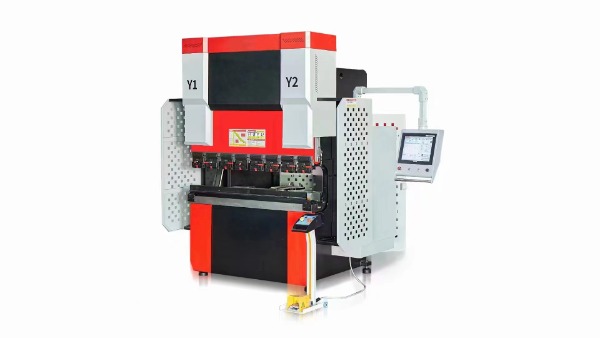How does a hydraulic press brake differ from a mechanical press brake in terms of operation and capabilities?
2024-09-02
Hydraulic press brakes utilize a hydraulic system to apply force. This system involves hydraulic cylinders that exert pressure to bend the metal. The hydraulic mechanism allows for precise control over the bending process, making it suitable for high-volume production and complex tasks. One of the primary advantages of hydraulic press brakes is their ability to handle varying material thicknesses and types with ease. The hydraulic system can adjust the force applied according to the material's requirements, which contributes to greater flexibility and accuracy. Additionally, hydraulic press brakes often come equipped with advanced features like CNC controls and automatic backgauges. These technologies enhance the machine’s efficiency by providing precise measurements and automated adjustments, which reduces setup times and improves overall productivity.
In contrast, mechanical press brakes rely on a mechanical linkage system, such as a crank or eccentric mechanism, to apply bending force. This type of press brake typically has a more rigid structure, which can lead to a high level of repeatability and durability under consistent conditions. Mechanical press brakes are known for their straightforward design and fewer moving parts, which can mean lower maintenance requirements compared to hydraulic models. However, they may not offer the same level of flexibility when it comes to handling a wide range of material thicknesses and types. Adjustments often need to be made manually, which can lead to longer setup times and less precision compared to hydraulic systems.

Both types of press brakes have their unique strengths. Hydraulic press brakes excel in versatility and precision, particularly when used with advanced control systems. They are well-suited for applications requiring complex bends and high production rates. On the other hand, mechanical press brakes offer robust performance and reliability for straightforward tasks where material and thickness requirements are more consistent.
For businesses looking to invest in a press brake machine, the choice between hydraulic and mechanical models often comes down to the specific needs of their production processes. Our "Press Brake Machine" stands out in the market due to its advanced hydraulic system, which ensures exceptional flexibility and precision. It incorporates the latest technological advancements, such as CNC controls and automatic backgauges, allowing for seamless adjustments and enhanced productivity. This makes our press brake machine an excellent investment for companies aiming to achieve high-quality results with efficiency and minimal downtime.
Ultimately, whether you choose a hydraulic or mechanical press brake will depend on your operational requirements and production goals. Understanding the differences in operation and capabilities between these two types will guide you in selecting the most suitable machine for your needs, ensuring optimal performance and value for your investment.

 English
English русский
русский Français
Français Español
Español Português
Português عربى
عربى










